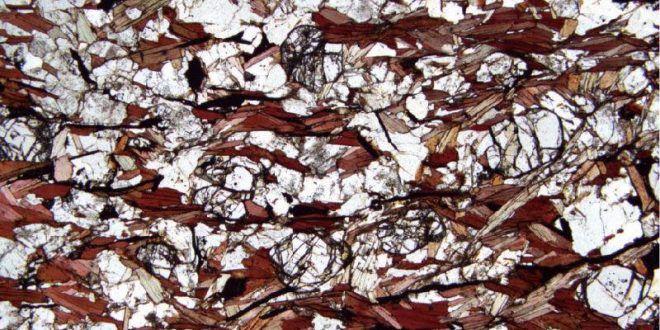Life on Earth really did begin around 4 billion years ago – increasing the chances it could be abundant throughout the universe, according to new research.
Graphite found in sedimentary rocks in Labrador revealed that the geochemical signature came from the decomposition of living organisms, researchers from the University of Tokyo said.
The substance – a form of carbon used in pencil lead – was analyzed by scientists to determine its isotope composition and the signature of its chemical elements.
The team concluded the graphite was “biogenic,” meaning it was produced by living organisms. The identity of these organisms remains a mystery, however.
“This is the oldest evidence,” lead researcher Tsuyoshi Komiya told AFP. “Our samples are also the oldest supracrustal rocks preserved on Earth.”
The samples were gathered from the Saglek area between 2011 and 2013.
The team plans to analyze more isotopes, such as nitrogen, sulphur, and iron, of the organic matter and accompanied minerals to identify what kind of organisms could have been involved.
Komiya told Reuters, however, that they believe that they are remnants of primordial marine micro-organisms that “inhabited an open ocean.”
Earlier this year it was reported that fossils in Quebec were the oldest traces of life on Earth with authors of that research estimating they were between 3.8 billion and 4.3 billion years old.
Komiya claims the dating process used in that study was “highly controversial,” however.
Prior to that scientists claimed that 3.7 billion-year-old fossils found in Greenland were the oldest signs of life.
Similar to these previous findings this latest research is being viewed by some with measured skepticism.
Severely heated and squashed rocks formed billions of years ago can lead to difficulties in interpreting their geological context. It can also be challenging to distinguish chemical traces of life from reactions that do not involve living organisms.
These studies, however, suggest that microbial life emerged earlier than previously known and relatively soon after the Earth’s formation about 4.5 billion years ago.
Agencies/Canadajournal
 Canada Journal – News of the World Articles and videos to bring you the biggest Canadian news stories from across the country every day
Canada Journal – News of the World Articles and videos to bring you the biggest Canadian news stories from across the country every day



